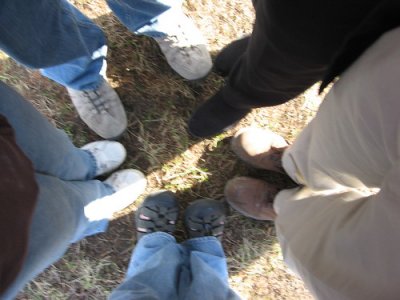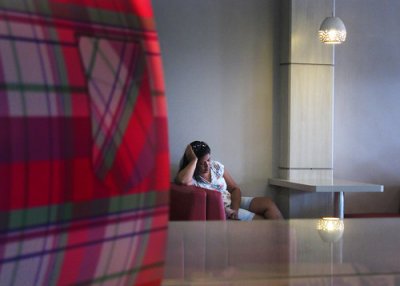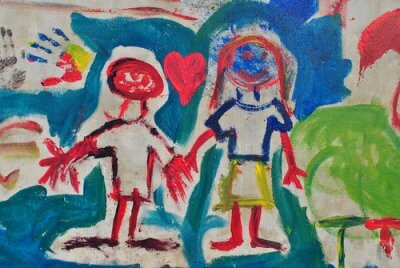Community Building – Can it Help Your Mental Health?

By: Chris Lott
by Fiona Thomas
Could community building be a key part of your recovery from depression?
What is community?
The word community has changed in the last ten years.
Once a word associated with people abiding in the same area or having similar interests (e.g. the town residents or the local football team supporters) it’s now a term used to label consumers and the conversations they have online.
And it’s the focus of entire departments in companies, made up of experts trained to manage things like social media platforms, newsletters and blog content.
But how do you build a good old-fashioned community? And why?
The pandemic of loneliness
One major reason is loneliness.
Research by the UK’s Office for National Statistics found that, “16 to 24 year-olds felt lonely more often than any other age group, with 10% saying that they felt lonely ‘always or often’.’’
This feeling of isolation can be caused by moving school, starting university, a disconnected family life, and generally being further away from a strong support network of people you trust.
Left untreated, loneliness can have serious consequences. A review on the psychological aspects of loneliness links it to, amongst other issues:

By: Carlos Ebert
And of course it can work both ways. Those affected by things like depression and addictions often experience loneliness as a result of their condition. They tend to isolate themselves due to low self-esteem, difficulty interacting, and the social stigma attached to mental health issues.
How does community building help?
There are a few reasons why community — both online and offline — can help alleviate loneliness and lead to a marked improvement in mental health.
1. Shared understanding.
Whether you’re a freelance writer having a rant about unpaid invoices or a social media executive learning about the latest Instagram update, talking to others who understand your day-to-day life is comforting.
For others this might mean talking to people who have had a similar childhood, opening up in a support group about grief or just finding virtual buddies to play video games with.
2. Sense of purpose.
There are Facebook groups for just about everything these days from crafting to wedding planning to sustainable living. Having the odd piece of knowledge to share with your people is satisfying and fills the lonely days with moments of meaningful contribution. For you this might be teaching an art class, coaching the local netball team or going to the gym and spotting someone when they lift heavy weights.
3. Inspiration.

By: Parth Joshi
Creativity can often strike in moments of solitude when people have more time to think.
But letting ideas fester away can lead to negative self-talk. How often have you had a great idea and then talked yourself out of going through with it?
Being part of a community of like-minded people gives you a safe space to explore creative thoughts in conversation, lets you bounce ideas off people and even collaborate to bring them to fruition.
4. Resilience.
If we have others to run things by, even if it’s just over a Facebook group page, we can feel stronger about a challenge we are facing and bounce back more easily if we feel overwhelmed.
5. Belonging.
It’s described best by psychologists McMillan & Chavis, who wrote that, “A sense of community is ‘a feeling that members have of belonging, a feeling that members matter to one another and to the group, and a shared faith that members’ needs will be met through their commitment to be together.”
Community building ideas
- start with your passions — whether it’s painting, dancing or watching movies — and seek out clubs in your area
- search Eventbrite or Meetup for interesting events. Many of them are free and will be filled with people who have similar interests to you
- if you’re an introvert, try online communities first to build your confidence
- listen to podcasts on topics that you love. You’ll find that many of them have associated Facebook groups where listeners gather to talk about each episode. This is also true for TV shows, movies, bands, etc.
- take part in Twitter chats
- join learning communities or take an online course, many of them have forums where you can talk to fellow students
- try volunteering. As well as meeting people, it’s proven to improve your mood.
Feel so lonely you aren’t sure what to do anymore? Harley Therapy connects you to top talk therapists in central London. Or find an affordable UK-based registered therapist or online therapist on our booking site and get talking.
Still have a question about loneliness and community building? Or want to share your tips with other readers? Use the comment box below. Comments are monitored and we do not allow advertisements or inappropriate content.
 Fiona Thomas is a freelance writer. Her book ‘Depression in a Digital Age: The Highs and Lows of Perfectionism’ (Trigger, 2018) is an extension of her work around mental health, and a celebration of all that’s possible through the power of social media. Find her on Instagram and Twitter.
Fiona Thomas is a freelance writer. Her book ‘Depression in a Digital Age: The Highs and Lows of Perfectionism’ (Trigger, 2018) is an extension of her work around mental health, and a celebration of all that’s possible through the power of social media. Find her on Instagram and Twitter.




